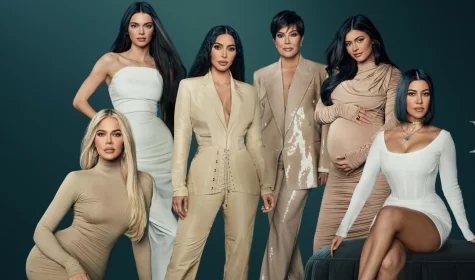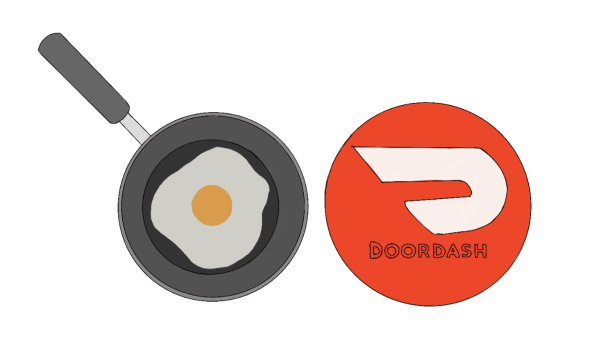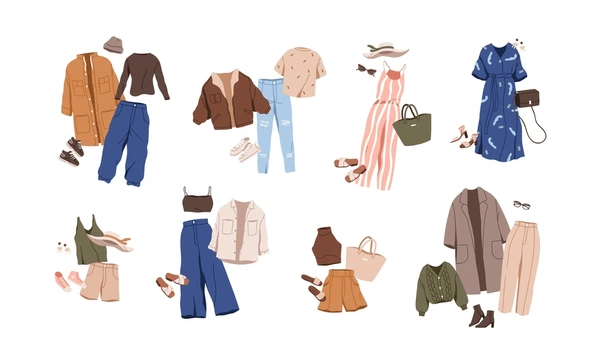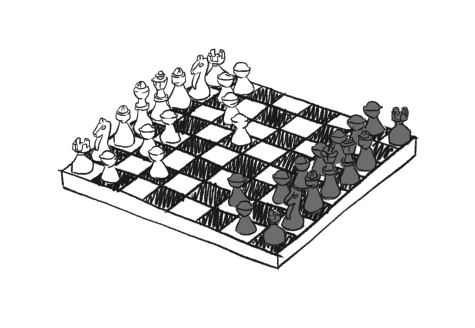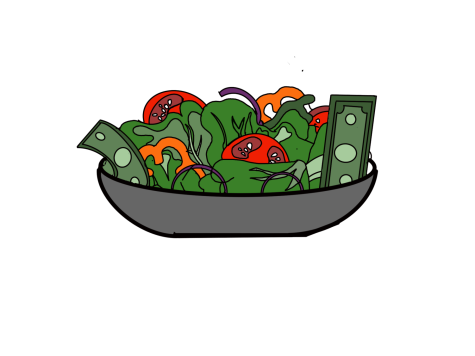Macho meat: masculinity of meat
From advertisements to kids’ meals, beef has become a staple of American culture. It is ingrained in American culture through examples like barbeques, hamburgers and meat consumption; by now, hamburgers are the most purchased meal in every state. To maintain America’s current meat consumption levels, the government spends 38 billion dollars per year to subsidize the agriculture industry. However, only 0.04% of that money ever goes to directly subsidize fruits and vegetables. With the government subsidizing livestock, 80% of American agricultural land is used for cattle to live on, allowing for a plentiful supply of beef. Currently, there is a large gap between meat consumption and genders.
According to a 2015 U.S. National Health and Nutritional Survey, men eat 57% more meat than women. According to Charles Sturt University, men tend to associate meat with masculinity and machismo. However, this understanding of masculinity is relatively unique to America and its culture. American men eat 30% more meat than their European counterparts, and this could be due to government policies. The European Union only spends around 800 million dollars per year subsidizing the meat and dairy industry, almost 50 times less than their American counterparts. America is spending a fortune to make meat more easily accessible to the average consumer, but the motivations to do so should be inspected.
“We’re not gonna let Joe Biden and Kamala Harris cut America’s meat!” Mike Pence, former Vice President of the United States said in rebuttal to Kamala Harris’ statements about changing USDA guidelines on red meat. “America’s meat” signifies meat as a part of American culture, but Pence’s reasoning for defending the meat industry may go farther than simple adoration for Americans. The meat industry spent 200 million dollars on lobbying for policies maintaining the status quo of the meat industry. The meat industry getting entrenched in American politics and culture may seem like a recent product of the 20th and 21st century, however, its true origins start in colonial America.
Meat consumption became ingrained into America’s colonization efforts during the age of Manifest Destiny. As the American colonists started their westward expansion, they would expel Native American tribes from their lands and drive bison herds that once roamed the Great Plains extinct. To replace the bison, Americans to replace the bison, Americans brought cattle with them. Americans’ growing love of Wild West stories cemented aggressive dominance and expansion as cornerstones of the American psyche. Cowboys, farmers who were capable of defending their land and livestock from “Indian” aggressors, became a cornerstone of American stories. But, as a side effect, the meat produced from cattle across the West was tied with another foundational belief of America — individualism. Once the Wild West was conquered, the benefits of a functioning society soon flooded in. Infrastructure, rule of law and urbanization removed the need for a rugged individual capable of great violence.
Even after the Wild West, this culture of meat and masculinity continued. A prevalent example of this is the association between meat and muscle. In this kind of advertisement, it will show muscular people, usually men, eating meat. Not only does this kind of advertisement reinforce the notion that meat is required to build muscle, it sets up unrealistic standards for men. The use of attractive, muscular men eating meat is implying that the viewer should emulate their behavior.
A core pillar of masculinity is its relationship with women. Often, when women are shown in meat advertisements they are treated as objects of desire. In a 2015 Carl’s Jr Superbowl ad, actress Charlotte McKinney walks through a street market half-naked while giving a voiceover describing herself as “natural” and “juicy”. This kind of advertisement appeals to heterosexual males while objectifying and portraying women as subservient. These advertisements reinforce the idea that meat is essential to be the ideal man, if you eat meat you will become more successful in the dating scene.
In addition to meat being displayed as masculine, not just meat marketing, but much of the greater media show vegan men as effeminate and weak. Vegans and vegetarians are ridiculed as fad-obsessed, overly sentimental and confrontational. Without meat, vegans are shown eating joyless mush and are shown as weak, pale and anemic as a result of veganism. These stereotypes about vegans are supplemented by myths about soy, an important part of many vegans’ diets, harming one’s thyroid and feminizing men. All of this creates a toxic culture around demeaning veganism as a whole, causing many men to be more hesitant about adopting plant-based diets.
Due to the meat industry’s effort in demeaning meat alternatives and mythologizing meat into America’s concept of masculinity, it is able to justify its bloated size to not only your average consumer but our government as well. All of their labor ingrains the irrational thought that meat is essential to American society and culture.








